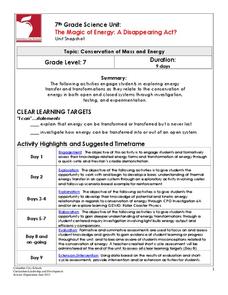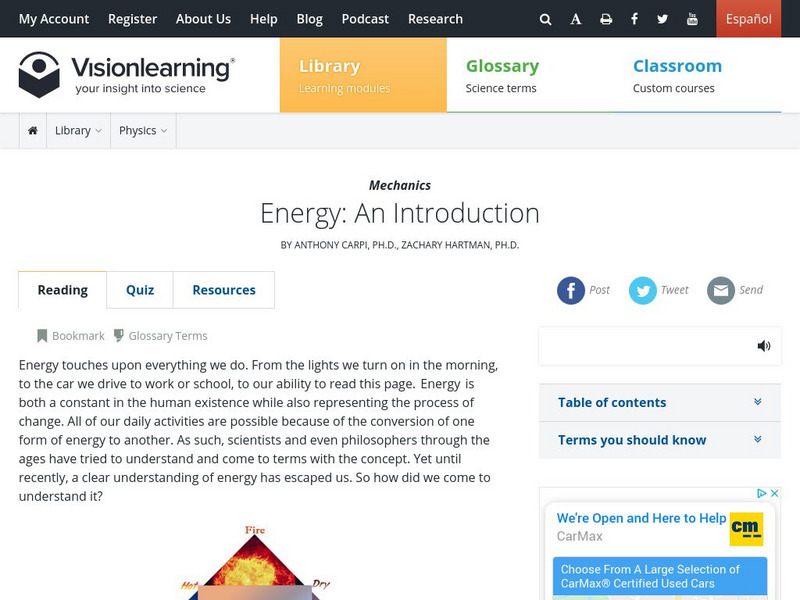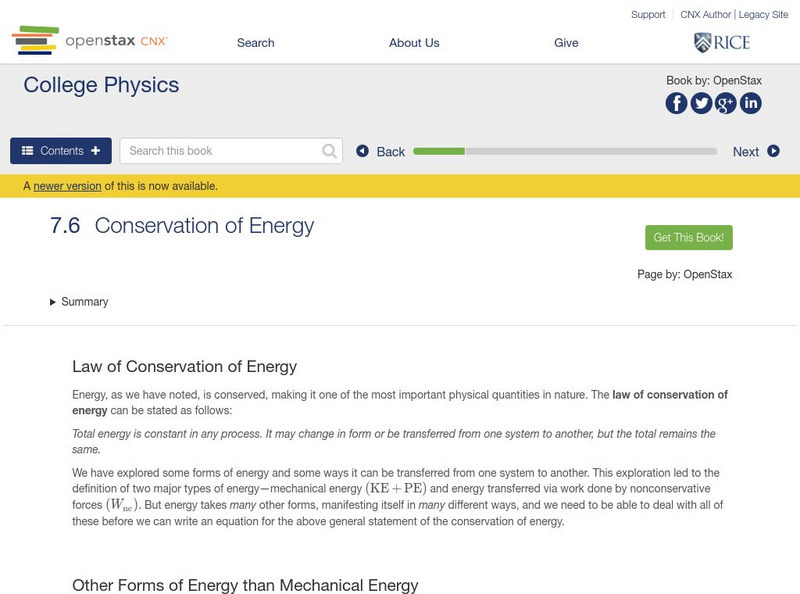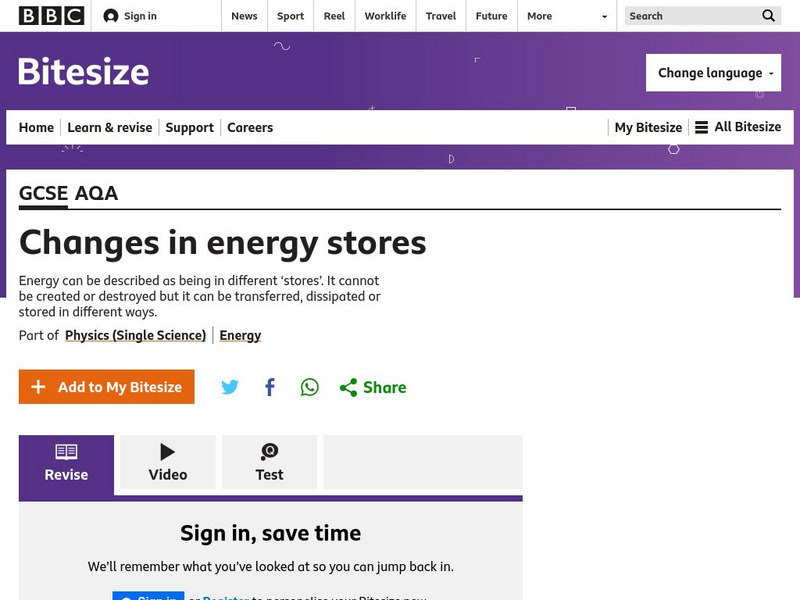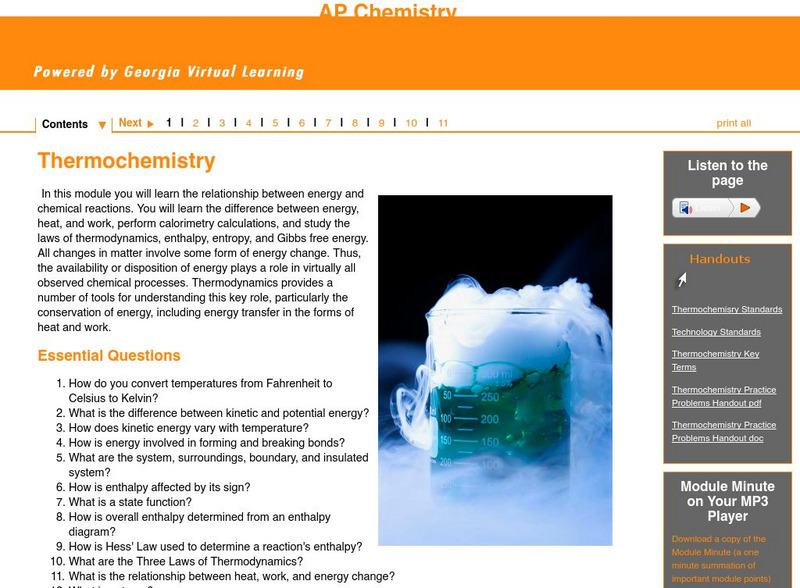Government of South Australia
Don't Waste Your Energy
Don't lift another finger, this physical and environmental science unit has everything you need to begin teaching your class about energy. Starting with a look at the greenhouse effect, these lessons and activities take young scientists...
Columbus City Schools
Transformation: Energy in Disguise
Energy transformations happen everywhere, every second of the day. The energy transformation common to most scholars is potential and kinetic energy. The three-week lesson covers multiple types of energy transformations through...
Columbus City Schools
The Magic of Energy: A Disappearing Act?
Using the 5E method for teaching about kinetic energy, potential energy, and conservation of energy, this two-week unit with many videos and possible extensions is sure to keep pupils engaged as they are learning.
Columbus City Schools
What’s Up with Matter?
Take a "conservative" approach to planning your next unit on mass and matter! What better way to answer "But where did the gas go?" than with a lab designed to promote good report writing, research skills, and detailed observation....
Texas Education Agency
Texas Gateway: Kinetic Theory: Atomic & Molecular Explanation of Pressure & Temp
By the end of this section, you will be able to express the ideal gas law in terms of molecular mass and velocity; define thermal energy; calculate the kinetic energy of a gas molecule, given its temperature; describe the relationship...
Vision Learning
Visionlearning: Mechanics: Energy
Definitions of various forms of energy are presented along with a brief scientific history of energy related concepts.
OpenStax
Open Stax: Conservation of Energy
In the following tutorial, students will learn about the law of conservation of energy. They will read about some of the many forms of energy. They will understand the definition of efficiency of an energy conversion process as the...
eSchool Today
E School Today: Energy
Explains different kinds of energy, covering kinetic, potential, gravitational, mechanical, sound, thermal, chemical, electrical, and radiant energy. Also looks at storage, transfer, and dissipation of energy. Includes a short...
CK-12 Foundation
Ck 12: Forms of Energy
[Free Registration/Login may be required to access all resource tools.] In this online lesson students will investigate examples of kinetic and potential energy and their transformations.
Texas Education Agency
Texas Gateway: Forms of Energy
Given diagrams, illustrations, or descriptions, students will identify the types of energy.
BBC
Bbc: Gcse Bitesize: Changes in Energy Stores
Energy can be described as being in different "stores". It cannot be created or destroyed but it can be transferred, dissipated or stored in different ways. There are seven main stores of energy: magnetic, internal (thermal), chemical,...
Scholastic
Scholastic: Study Jams! Science: Matter: Energy & Matter
A video and a short quiz on the different forms of energy, and how energy moves or changes matter.
TeachEngineering
Teach Engineering: Energy
Through nine lessons, students are introduced to a range of energy types--electrical, light, sound and thermal-as well as the renewable energy sources of wind, hydro (water) and solar power. Subjects range from understanding that the...
Concord Consortium
Concord Consortium: Molecular Workbench Showcase: Heat and Temperature
A tutorial that explores the concepts of heat and temperature, the transfer of energy between substances, the relationship of temperature and the movement of atom, and thermal radiation. The tutorial includes animations, interactive...
Concord Consortium
Concord Consortium What Is Happening When a Spark Occurs?
Activity 1 of this module investigates: How does potential energy change when things are pushed or pulled? Exploring how force is related to potential energy, this activity investigates how potential energy is changed when a spring is...
Georgia Department of Education
Ga Virtual Learning: Ap Chemistry: Thermochemistry
In this module students learn the relationship between energy and chemical reactions, and understand the difference between energy, heat, and work. They perform calorimetry calculations, and study the laws of thermodynamics, enthalpy,...


